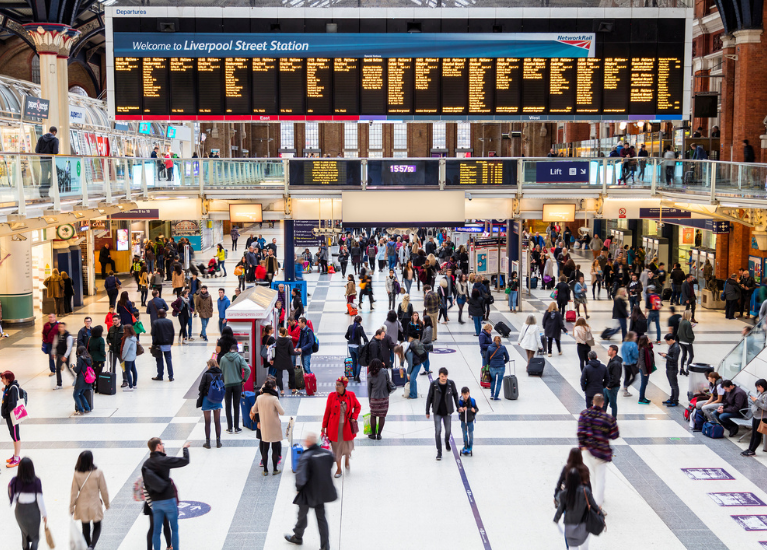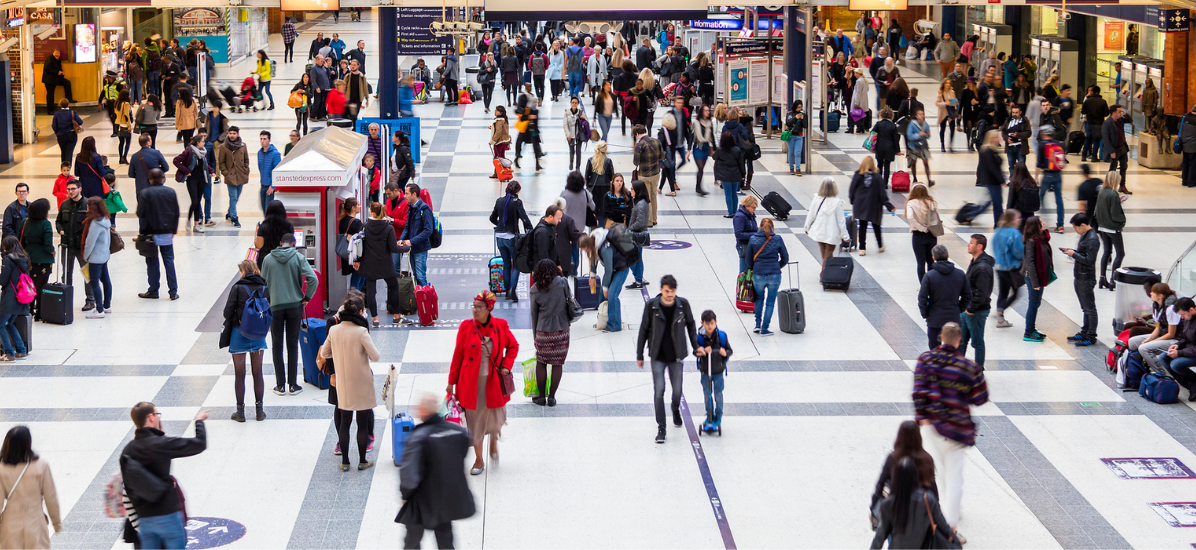At a time when urban mobility is facing numerous challenges, the potential of artificial intelligence (AI) to revolutionize the first and last mile experience for travelers is increasingly being recognized.
As per a 2023 report by the World Bank, an estimated $1.9 trillion is lost annually owing to global traffic congestion. All the major cities of the world face high traffic delay times, which increases the commute times manifold, and puts a huge dent on the travel experience. Urbanization continues to increase, and by 2050, more than half of the world population will be living in cities, leading to increased congestion. This in turn will bring urban mobility providers under immense pressure to provide smarter, more sustainable, and quicker means of travel.
To combat these issues and make the roads better and safter for travel, AI is already proving to be a powerful and dependable tool. AI's ability to analyze vast datasets and predict user behavior is transforming the way we approach transportation, ensuring more efficient and user-centric solutions. In this blog, we will delve into the innovative ways AI is reshaping urban transport, focusing on the findings from recent research and practical implementations. We will also discuss how a leading transport provider is harnessing the power of gen AI to enhance its customer interaction platforms.
How AI can optimize travel
AI is being increasingly harnessed to enhance the first and last mile. Recent studies highlight the transformative impact of AI on first and last-mile travel challenges. By leveraging data from passenger apps and journey planning systems, AI technologies, including machine learning and autonomous vehicles, can optimize route planning, traffic management, and overall user experiences. These advancements lead to reduced commute times, improved reliability, and a seamless, user-centric journey, enhancing passenger satisfaction and contributing to smarter, more sustainable urban transportation systems.
AI helps enhance first and last mile travel.
AI-based trip planner apps for personalized travel
Intermodal trip planning, mobile ticketing, payment, and real-time information are integral parts of modern mobility apps. However, travelers have individual needs and preferences. AI-enhanced trip planner apps can learn users’ behaviors and habits to deliver personalized and proactive mobility recommendations. For example, a traveler who relies on public transport and car-sharing services, can benefit from an AI-driven app that suggests alternative routes during disruptions and reminds them to buy the necessary tickets.
AI helps turn everyday travel into personalized service.
Better data analytics and data insights through artificial intelligence
Connectivity and data are central to modern mobility solutions. Mobility-as-a-Service (MaaS) platforms generate a wealth of data, from public transport schedules and real-time positions to the availability of shared vehicles and infrastructure status. By turning big data into smart data through advanced analytics, AI provides insights that improve operational efficiency and passenger experiences. For instance, data analytics can predict passenger flows, optimize service schedules, and enhance the overall quality of transport services.
AI helps gain valuable data insights for better passenger experiences.
AI for operational excellence
AI contributes significantly to advanced applications in the transport sector, such as predicting transport demand, monitoring passenger numbers, and detecting disruptions in real-time. By analyzing historical and real-time data, AI helps operators make informed decisions that enhance service quality and operational efficiency. This results in better planning, reduced costs, and improved passenger experiences.
AI helps in advanced prediction and decision support.
Quick and easy first and last mile analysis
In-depth analyses of first and last mile journeys using AI reveal insights into passenger behaviors and travel patterns. By examining historical data on passenger flows and vehicle utilization, operators can improve transfer quality and identify optimal routes. AI-driven solutions can also detect incidents in real-time, allowing for prompt responses and minimizing disruptions. For example, AI video analytics enable route operators to immediately detect anomalies in traffic patterns (such as an accident, damaged road, maintenance work, or peak time congestion) and immediately divert the current traffic.
AI helps identify optimal routes through data insights.
AI in customer interaction: The story of Arriva UK Trains
Let’s take the example of Arriva UK Trains in this AI space. Arriva is exploring generative AI to enhance customer interactions and the overall customer experience by providing concise, personalized information. By leveraging AI to summarize transport information and predict customer needs, Arriva aims to improve the travel experience. Through this technology, Arriva UK Trains can suggest alternative routes during delays, answer queries about tickets, and offer proactive travel updates.
Arriva plans to integrate generative AI into its customer interaction platforms, focusing on journey planning, travel advice, and managing disruptions. By automating responses to common queries, AI can reduce the burden on customer contact centres, allowing staff to focus on complex issues. This integration promises to streamline processes and enhance service delivery, making travel more convenient and efficient for passengers.
Generative AI helps in enhanced passenger experience.
Future prospects in the field of AI and urban mobility
Generative AI is set to reshape the public transport landscape by improving operational efficiency and service delivery. AI's ability to analyze and predict passenger needs allows for more personalized and proactive services. As AI technology evolves, it will enable transport operators to offer better, more responsive services, ultimately enhancing the overall passenger experience.
AI is shaping the future of public transport.
Conclusion
The integration of AI into urban mobility systems offers tremendous benefits, from personalized travel experiences to improved operational efficiency. As demonstrated by recent research and practical implementations, AI-driven insights can transform first and last mile travel, making urban transport smarter, more accessible, and sustainable.
Most importantly, the use of AI in optimizing current urban mobility processes is leading to lesser traffic congestion on the roads, plus reducing the carbon footprint. Lastly, the kind of potential gen AI holds is immense, and transport providers must see how they can leverage gen AI in the best way possible to get the maximum benefits.
Nagarro remains committed to leveraging advanced technologies to enhance mobility solutions and deliver exceptional value to passengers and operators alike. For more insights and updates on AI in travel , or to just discuss more on the above points, reach out to us.





